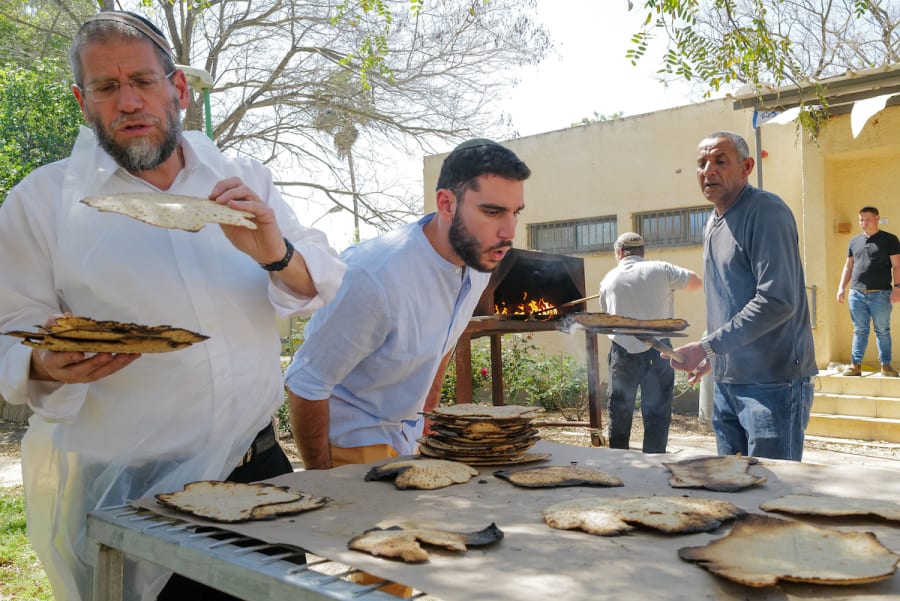The holiday of spring – the two-fold characteristics of Passover
In this series of articles My Evven and ALL ISRAEL NEWS wish to rediscover forgotten events, traditions and places in Israel

My Evven’s ancient temple mount stones were rescued from a forgotten pile of debris and preserved for what they really are- a piece of sacred history.
In this series of articles My Evven and ALL ISRAEL NEWS wish to rediscover forgotten events, traditions and places in Israel.
To learn more about My Evven click here. Use checkout code ‘AllIsrael’ to receive a 10% discount for your purchase and become an Evven (‘stone’ in Hebrew) Guardian.
Last Friday night – the 15th of the month of Nisan on the Jewish calendar – Jews all over the world celebrated the salvation of the Israelites from Egypt about 3,200 years ago.
As they have done for thousands of years, they sat at the Passover Seder – the ceremonial meal and storytelling that marks the start of the holiday. This feast consists of many customs and rituals, of which, eating matzah – the unleavened flatbread of the ancient Middle East – is the most important. So important that the Bible refers to Passover as the Holiday of the Matzot. Matzot is plural for matzah; e.g. Exodus 23:15)
Matzah is a simple food, made from nothing but flour and water and baked before it has a chance to leaven. It is, therefore, clear why the Bible calls it “bread of affliction” (Deuteronomy 16:3).
That is how the Passover Haggadah (the traditional text recited during the Seder) begins: “This is the bread of affliction that our forefathers ate in the Land of Egypt. All who hunger, let them come and eat. All who are in need, let them come and celebrate …” This means that we eat matzah on Passover to recall the slave rations of our ancestors during their years of bondage in Egypt – the food that symbolizes the degradation and misery of their existence.
However, in one of the following paragraphs of the Haggadah, the meaning of the matzah changes from 'bread of affliction' to 'bread of freedom': “The matzah that we eat, what does it signify? Because the dough of our fathers did not have time to leaven before The King of Kings, blessed be He, revealed Himself to them and redeemed them. As it is said: And they baked unleavened bread from the dough which they brought out of Egypt, for it was not leavened, because they were driven out of Egypt and could not delay; nor had they prepared themselves any food for their journey.” (Exodus 12:39)
Suddenly, the matzah is not an unleavened bread that sustained the Israelites during their years in Egypt, but the unleavened bread they prepared as they stood on the threshold of liberty. All their lives under slavery they had eaten matzah because they were denied the time to bake a proper loaf of bread. Now, in their rush to flee from Egypt, they prepared once again the hard dry flatbread they knew so well. However, this time it reflected the anticipation of freedom instead of the humiliation of servitude.
The lesson to be learned is that the difference between slavery and freedom is not necessarily about the physical conditions. The bread may remain equally hard in both states, but it's the shift in the psychology that changed everything. When eating the hard crust in passive submission to the Egyptian masters, the matzah was a bread of slavery. But when the Israelites chose to eat unleavened bread and head to the desert – rather than remain in civilized Egypt waiting for the dough to rise – the hard crust became the bread of freedom.
"Freedom is in the psyche, not in the bread." (Irving Greenberg, The Jewish Way)
Read more about the meaning of Passover here.

Uri Steinberg is a former Israeli Tourism Commissioner for North America, Israel Ministry of Tourism, and currently serves on the ALL ISRAEL NEWS advisory board.














